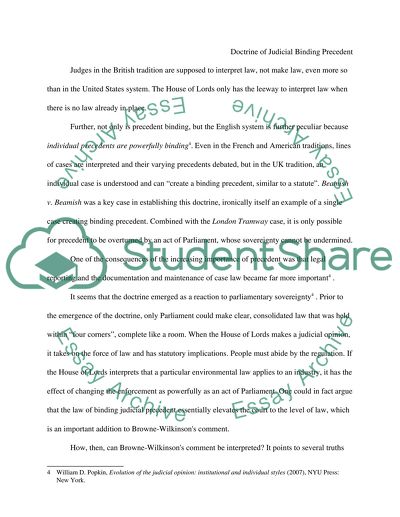Cite this document
(“Doctrine of Judicial Binding Precedent Essay Example | Topics and Well Written Essays - 2000 words”, n.d.)
Retrieved from https://studentshare.org/family-consumer-science/1411399-doctrine-of-judicial-binding-precedent
Retrieved from https://studentshare.org/family-consumer-science/1411399-doctrine-of-judicial-binding-precedent
(Doctrine of Judicial Binding Precedent Essay Example | Topics and Well Written Essays - 2000 Words)
https://studentshare.org/family-consumer-science/1411399-doctrine-of-judicial-binding-precedent.
https://studentshare.org/family-consumer-science/1411399-doctrine-of-judicial-binding-precedent.
“Doctrine of Judicial Binding Precedent Essay Example | Topics and Well Written Essays - 2000 Words”, n.d. https://studentshare.org/family-consumer-science/1411399-doctrine-of-judicial-binding-precedent.


